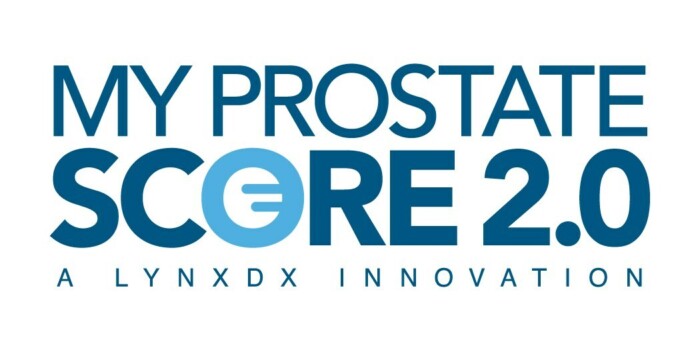Prostate cancer biomarkers tests (PCMs) can help inform your clinical decision making for prostate cancer screening, biopsy and treatment planning.
PCMs analyze a variety of genomic or molecular markers linked to prostate cancer in urine, blood or tissue samples. These tests can provide you with insights about:
- A patient’s increased risk of developing prostate cancer
- Whether or not prostate cancer is likely to be present, particularly if there is conflicting data
- The aggressiveness of prostate cancer
- A patient’s risk of prostate cancer-specific mortality
- How effective targeted therapies may be for a patient
PCMs can be helpful at any stage of prostate cancer, from making an initial diagnosis to determining whether or not a patient may benefit from various treatment options during late-stage prostate cancer.
Genetic Testing
Patients with a family history of breast, colon, pancreatic, and/or prostate cancer may be at increased risk of developing prostate cancer. These genetic tests analyze genes to identify whether a patient has genetic mutations – either inherited or acquired – that are associated with prostate cancer. Positive results can help you determine appropriate screening recommendations, including beginning PSA testing at age 45 or younger. Positive results also can help inform your decision to refer a patient with abnormal PSA to urology, and they also are useful during treatment planning if a patient develops prostate cancer.

ProstateNext
ProstateNext utilizes a blood or saliva to test for mutations in 14 genes that have been associated with hereditary prostate cancer.

Myriad MyRisk – Providers
The Myriad MyRisk genetic test uses a saliva sample to analyze 48 genes and identifies elevated risk for 11 hereditary cancers.
%s
Post-PSA Biomarker Tests
These urine and blood PCMs can provide additional information to inform next steps when PSA levels are above 1.5 ng/mL or when PSA levels are normal but a patient is presenting with other risk factors, such as an enlarged prostate or family history of cancer.

4Kscore – Providers
The 4Kscore is a FDA approved test that offers the sensitivity and specificity needed to detect aggressive prostate cancer probability.

ExoDx – Providers
The ExoDx Prostate Test is a simple, non-DRE, urine-based, liquid biopsy test indicated for men 50 years of age and older.

MyProstateScore 2.0 (MPS2) – Providers
The MPS2 test is an FDA-approved urine test that can help distinguish prostate cancer from benign prostatic conditions.

phi test – Providers
The Prostate Health Index (phi) test is an FDA-approved blood test that can help distinguish prostate cancer from benign prostatic conditions.

PROSTest -Providers
Powered by a 27-gene panel and advanced machine learning, PROSTest offers a non-invasive, high-accuracy tool for diagnosis, biopsy triage, active surveillance, and post-treatment monitoring.

Select MDx – Providers
Select mdx helps healthcare providers determine if a patient with an abnormal PSA is at higher or lower risk for prostate cancer and which patients can safely avoid biopsy.
%s
Post-Biopsy PCM Tests
As a healthcare provider, you know that biopsy results don’t always tell the full story or provide clear direction on what to do next. These tissue-based PCMs can help determine whether or not treatment or active surveillance may be the best route to take.
Patients with a negative biopsy result who have a high PSA level or other prostate cancer risk factors:

Confirm mdx – Providers
ConfirmMDx is a molecular diagnostic test that analyzes epigenetic changes in DNA and predicts the likelihood of cancer being present when a standard biopsy is negative.

phi test – Providers
The Prostate Health Index (phi) test is an FDA-approved blood test that can help distinguish prostate cancer from benign prostatic conditions.

4Kscore – Providers
The 4Kscore is a FDA approved test that offers the sensitivity and specificity needed to detect aggressive prostate cancer probability.
%s
Patients with a positive prostate biopsy with a Gleason Score of less than or equal to 7:

Decipher – Providers
Known as a genomic test, the Decipher test analyzes 22 RNA biomarkers across 7 cancer pathways associated with aggressive cancer.

Prolaris – Providers
Prolaris is a tissue-based prostate cancer marker (PCM) that helps patients and their healthcare providers understand if they may need definitive therapy or if they may be eligible for active surveillance protocol.

Genomic Prostate Score – Providers
The Genomic Prostate Score (GPS) test, often called the GPS test, uses tissue from a previous biopsy and looks for the activation of 17 genes associated with prostate cancer.
%s
Treatment Planning PCM Tests
PCMs can help inform prostate cancer treatment planning and are particularly valuable for patients who have had a prostatectomy, are contemplating radiation, who have had radiation and a second biopsy and need more insights to inform their future treatment decisions, or who have advanced prostate cancer.
After a radical prostatectomy:

Decipher RP – Providers
The Decipher RP test is a tissue-based prostate cancer marker that helps healthcare providers determine if their patient needs additional treatment following radical prostatectomy.
%s
Before or after radiation (please note that many radiation oncologists may recommend waiting until a patient’s PSA rises +2ng/mL above the lowest point after their initial radiation to determine if further biopsies or treatment are warranted):

Decipher – Providers
Known as a genomic test, the Decipher test analyzes 22 RNA biomarkers across 7 cancer pathways associated with aggressive cancer.

Prolaris – Providers
Prolaris is a tissue-based prostate cancer marker (PCM) that helps patients and their healthcare providers understand if they may need definitive therapy or if they may be eligible for active surveillance protocol.

Genomic Prostate Score – Providers
The Genomic Prostate Score (GPS) test, often called the GPS test, uses tissue from a previous biopsy and looks for the activation of 17 genes associated with prostate cancer.
%s
This blood test can be effective in showing if androgen receptor (AR) targeted therapies may be effective for patients with advanced prostate cancer:

AR-V7 – Providers
The AR-V7 is a liquid biopsy blood test that identifies the presence of AR-V7, an important emerging biomarker in castrate resistant prostate cancer (CRPC).
%s
PCM Tests for Recurrent PC
Three out of 10 patients with prostate cancer will experience a recurrence of their cancer. For patients with a family history of breast cancer, ovarian cancer, prostate cancer, or colorectal cancer, genetic testing can provide more insights about potential gene mutations that impact treatment and outcomes.

ProstateNext
ProstateNext utilizes a blood or saliva to test for mutations in 14 genes that have been associated with hereditary prostate cancer.

Myriad MyRisk – Providers
The Myriad MyRisk genetic test uses a saliva sample to analyze 48 genes and identifies elevated risk for 11 hereditary cancers.
%s

